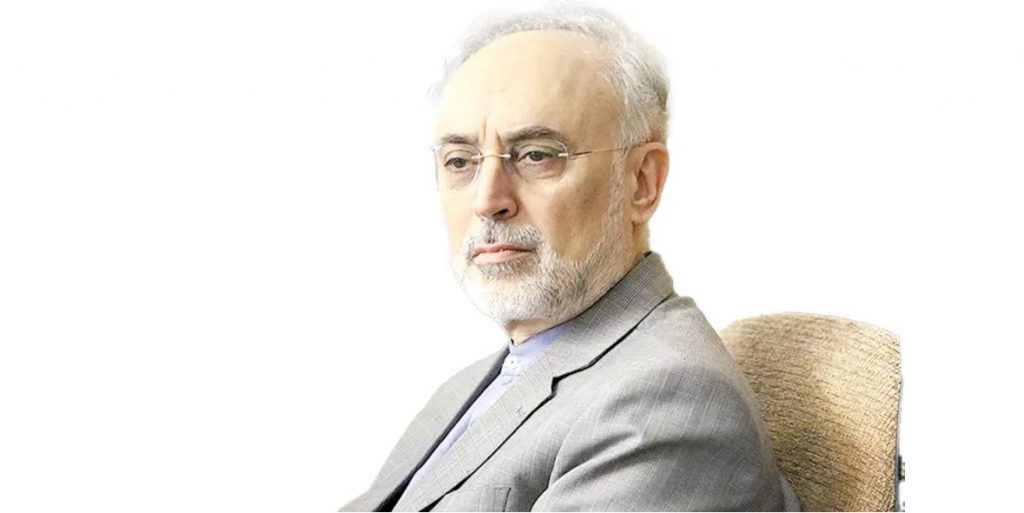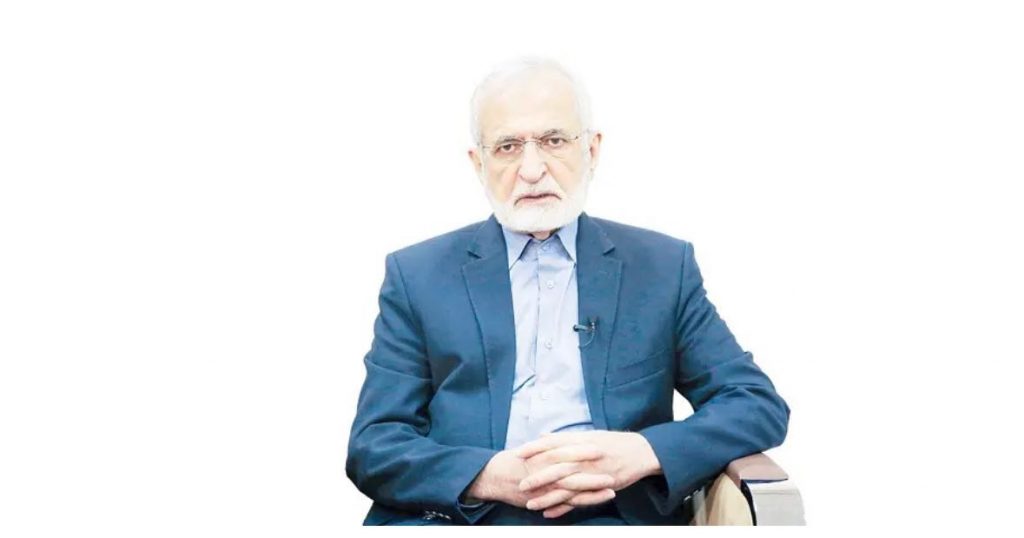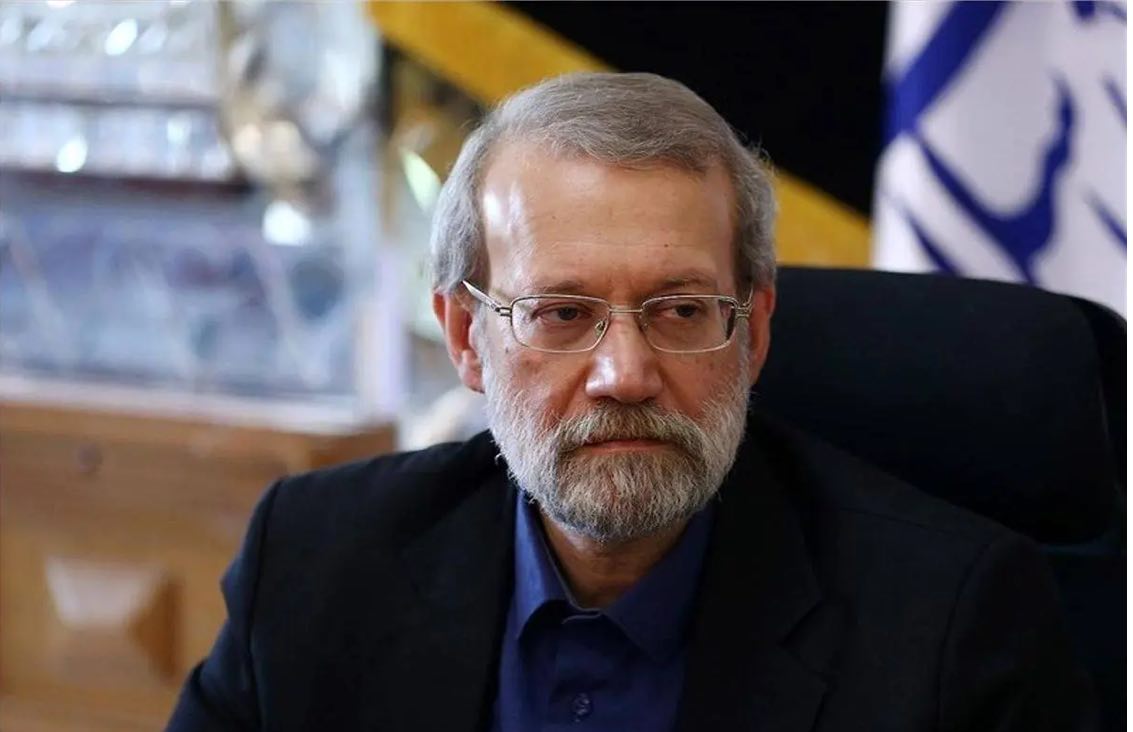What Did the Three Shadow Figures Say
What Did the Three Shadow Figures Say Ali Larijani made some remarks in the media last week
Although this political figure has a principled origin, over time he has emerged as a moderate politician. Larijani, despite having chaired the parliament for three terms and currently serving as an advisor to the leadership, has never taken a harsh stance but has been the subject of the most controversial disqualifications in the thirteenth and fourteenth presidential elections.
Currently, Larijani is close to those politicians and analysts who say that if a war flares up, we have the ability to confront it and defend ourselves, but we should avoid war as much as possible.
Ali Akbar Salehi, a seasoned diplomat of our country, former Foreign Minister and former head of the Atomic Energy Organization, also adopted a similar stance in his latest remarks. He says Iran should strive not to let the issue of Palestine be recognized as a point of conflict between Iran and Israel.
Currently, there are two dominant thoughts regarding Iran’s connection to war.
Hardliners in their remarks and analyses are calling for entering the war. The most prominent of this analytical line can be seen in recent editorials of the Kayhan newspaper and some television comments trying to theorize war.
This faction is trying to theorize a broad confrontation and is calling for a comprehensive and extensive engagement. The second thought believes in defense and says that as much as possible, we should avoid a broad and direct war because its consequences are damaging.
Larijani: We live for peace, not war
Ali Larijani, former Speaker of our country’s parliament, raised several important issues in his recent remarks that attracted attention. Analyzing the two sentences ‘neither hesitate nor act hastily, neither underestimate nor exaggerate’ presented by Ayatollah Khamenei in two speeches, he said everyone must accept that we live for peace, not for war.
War is also a phenomenon that is necessary at times, but everyone tries to have fewer wars and to avoid them as much as possible, resolving issues diplomatically. This does not mean we are not committed to our beliefs, but the important thing is whether it starts with war or peace.
Emphasizing the role of the US in supporting Israel, Larijani continued, logic dictates using paths and methods with lower costs. If that doesn’t work, they might use another method. In the adventure we are involved in, first, it must be accepted that this adventure was created by the Americans and Israelis.
That is, the Americans are active, and the Israelis are the instruments. In this recent aggression against Iran, it has been revealed that both the information and equipment were provided by the Americans to the Israelis.
The former Secretary of the Supreme National Security Council commented on discussions about the level of Israeli infiltration due to actions and operations conducted in Iran and the resistance axis, stating that generally, the issue of infiltration in Iran has been serious in recent years.
In my opinion, neglect has occurred over the years, and although the country’s security sectors have struck them, they have not been able to prevent all of them. In any case, it is an important point that is being pursued now, and measures are being considered.
In response to whether we have infiltration in the country’s political and security structure or military, Larijani emphasized that he couldn’t say in which part, but he knows that incidents like assassinations have happened, both for scientists and others, indicating infiltration.
Its discovery is very important, both in terms of quantity and quality, so this issue must be taken seriously, and its leads must be found, which sensitivity has now arisen.
A member of the Expediency Discernment Council commented on Iran’s role in the October 7 operation, saying that regarding October 7, Iran was not consulted, they did it themselves, and the point that the leadership mentioned was the exact reality, it was not shared with Iran.
When it was done, Iran realized it. Now, we are not saying they should ask for our permission because they make their own decisions. Iran’s mechanism is not such that others need to seek its permission, although external perceptions are different, but the reality is not so. Our behavior is not imperialistic.
They are fighters who make their own decisions. Sometimes they may consult with us, but in this case, they did not consult with us.
In another part of his remarks, Larijani said, I believe we must have sufficient readiness on the ground and also use the right diplomatic capacity. We must have a strategic diplomacy. The current conflict text is in the region, but its impact level is strategic, so its diplomacy must also be at this high level, not minor, and that’s why I think readiness must exist in both arenas.
This crisis will eventually end, but its requirements must be considered. It is very important that the depth of the matter is correctly understood and that the issue is precisely communicated to the people so they do not feel that the Islamic Republic is really interested in conflict.
He emphasized that the Islamic Republic is not interested in conflict but is ready to defend itself. These are two separate issues.
This means we do not want to be adventurous, but we want to defend our national interests.
This must certainly be intertwined with specific diplomacy, and hopefully, the government will carry it out.
Turning the Palestine issue into an Iran-Israel issue

Ali Akbar Salehi, our country’s former Foreign Minister, also made remarks that are noteworthy. Salehi said the Islamic Republic should ensure that in the global public opinion, the Palestine issue does not turn into an Israeli-Iranian conflict, but rather it is a struggle between Israel and the rightful Palestinians. They are trying to make it appear to the world as if it is a conflict between Iran and Israel, and they are slowly erasing the word Palestine, which represents the identity and truth of the matter.
Therefore, Iran, the Arab world, and the Islamic world must be sensitive to this issue and not let it come to fruition.
Salehi commented on the attachment of some opposition movements outside the country to Israel and Benjamin Netanyahu, saying America gave the same message of salvation to Iraq, and now what is the state of Iraq? It doesn’t even have control over its own skies.
America gave the same message to Afghanistan, and you saw what happened. Is Israel really a benefactor to Iran, saying we bring you freedom and prosperity?
Our country’s former Foreign Minister, in response to Israel saying our problem is only with the government, can you only fight with the government? Can you separate the government from the land? He said no, no free nation, with Iran at the forefront, would allow such action. See what costs we are paying now, the cost of supporting a just cause named Palestine. We are paying for this. If we abandon Palestine and say it doesn’t concern us, like other countries, we will no longer be labeled terrorists, nor accused of having nuclear bombs, nor accused of being anti-democratic. However, as I mentioned before, if the way were paved for Israel, there is no doubt it would claim the entire Middle East.
If the threat continues, the nuclear doctrine will change

Last night, an interview with Kamal Kharrazi, head of the Strategic Council on Foreign Relations, was broadcast on Al-Mayadeen network. Kharrazi talked about Iran’s commitment to negotiation to resolve issues, saying we are committed to negotiation and our previous agreements, provided the other parties also adhere to them.
Unfortunately, they are not committed and instead of negotiating, they continue to impose sanctions on the Islamic Republic of Iran.
Kharrazi, in response to being the first to say that if the Islamic Republic of Iran is threatened or attacked, it might change its nuclear doctrine, said that position still stands, that if the Islamic Republic of Iran faces an existential threat, we will have to change our military doctrine.
We currently have the necessary capability to produce weapons, and the only obstacle is the leader’s fatwa prohibiting the production of nuclear weapons. As for projectiles and missiles, everyone acknowledges our missile power.
In the Promise of Truth operation, we completely proved this capability. Regarding the missile range issue, we have so far considered Western sensitivities, especially Europeans, but when they do not consider our sensitivities, especially regarding the territorial integrity of the Islamic Republic of Iran, there is no reason for us to consider theirs. Therefore, there is a possibility that the range of Iran’s missiles may increase.

